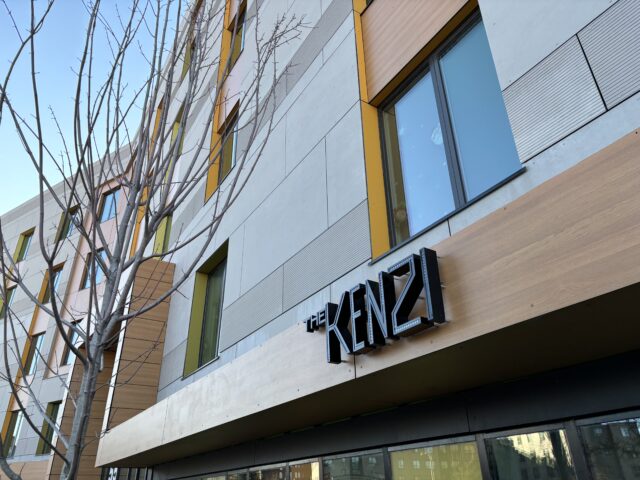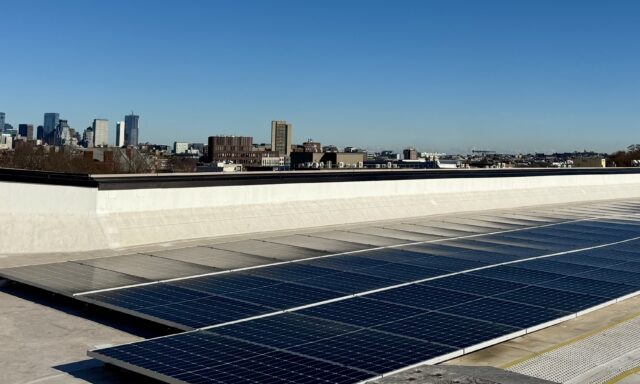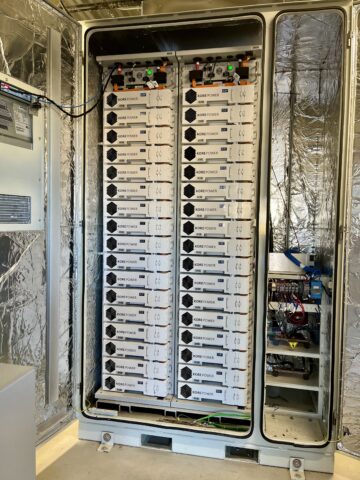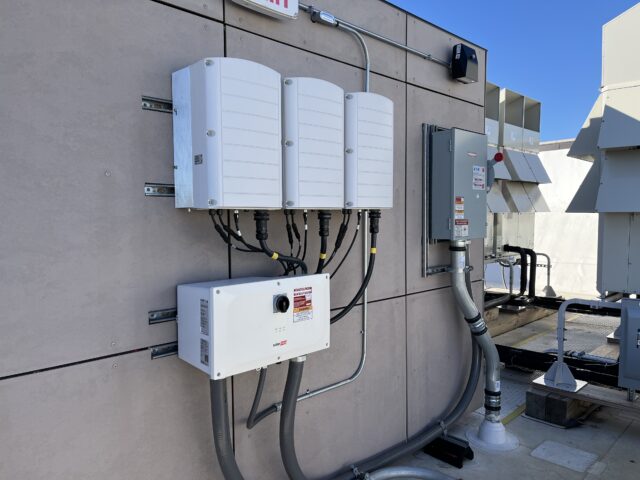The Kenzi at Bartlett Station
The Kenzi apartments in Boston, MA provide low-income seniors with resilient power through solar and battery storage, ensuring that residents have access to power for their medical devices, mobility aids, or other necessities in the event of an outage.
Preservation of Affordable Housing (POAH) has developed Boston’s first all-electric building greater than four stories with a city-permitted battery energy storage system paired with a rooftop solar array (solar+storage). Located in Roxbury, a low-income, primarily Black and Latino neighborhood of Boston, The Kenzi comprises 50 units of income-restricted senior apartments.
The 440-kilowatt-hour battery provides emergency backup power in the event of an outage. During an outage, it keeps power flowing to the elevator, the community room, emergency lights, and select outlets in the hallways on each floor.
VIDEO: Energy Resilience: How Solar+Storage Provides Backup Power for Affordable Senior Housing in Boston
Similar to hospitals, red outlets in the Kenzi denote that an outlet will remain powered through an outage. This system ensures that the battery can function for as long as possible while keeping power accessible for all residents.
“Especially at POAH properties where seniors are the residents, it's so much more important for them to have access to spaces that are continually powered. Having to relocate in a power outage is, I think, traumatic,” said Julie Klump, Vice President of Design and Building Performance at POAH.
During an outage, the battery can power the building’s critical loads for at least 12 hours. With additional energy production from the solar array, the system is able to run indefinitely through an outage, providing power to communal spaces and enabling medically vulnerable residents to shelter in place.
In addition to charging the battery, the 60-kilowatt rooftop solar array reduces energy use by supplementing the building’s power supply, which in turn lowers monthly energy bills.
The Kenzi also invested in robust energy efficiency measures. The building is airtight and has superior thermal insulation, making it extremely resistant to outdoor temperature changes. This is known as passive house construction; in the event of a power outage, the Kenzi can maintain its indoor temperature for several days with no energy required. It is certified under the Passive House Institute of the US (PHIUS) standard.
Completed in 2024, the Kenzi is one of 10 buildings that make up the Bartlett Station Affordable Housing Project. Bartlett Station is a mixed-use development with mixed-income housing, community space, and commercial storefronts. The land, a former bus yard, was once heavily polluted and had to be remediated. The project has been guided by Roxbury-based developers, with input from neighbors and residents.
In 2020, this project was awarded $7,500 through Clean Energy Group’s Technical Assistance Fund. The TAF provided POAH with a solar+storage feasibility assessment conducted by SunBug Solar, which found that a solar+storage system would be cost-effective. POAH worked with the City of Boston to utilize the battery as the facility’s primary backup power resource for emergency services such as the elevator. The road to approval took time, but it was a worthwhile investment for POAH, allowing them to avoid installing a gas backup power generator. In total, the solar+storage system cost $1 million.
“Knowing that backup [power] is available, I do feel more secure,” said Mary McDonald, a resident at the Kenzi apartments. “I think that's wonderful for all of us, especially those who need it with medical issues.”
Photos
Click on the photos below to view full size with captions. Additional project photos are available here.
Installation Details
Year Commissioned
2024
Services Provided
Backup power, demand management, net metering, cost savings
Supported Infrastructure
Elevator, community room that doubles as a resiliency center, select outlets in hallways, all emergency loads including lighting and the fire alarm
Solar
60 kW rooftop mounted
Storage
440 kWh lithium-ion battery
Project Partners
Preservation of Affordable Housing (POAH), Clean Energy Group, Nuestra Communidad Development Corporation, Department of Housing and Community Development, Neighborhood Housing Trust, Boston Medical Center









